Class: 9
Number present:
Number absent:
Lesson title
My Country.Abai Qunanbaiuli.
Learning objectives(s) that this lesson is contributing to
9.C1 use speaking and listening skills to solve problems creatively and cooperatively in groups
9.L7 recognise typical features at word, sentence and text level of a range of spoken genres
9.C8 develop intercultural awareness through reading and discussion
9.S7 use appropriate subject-specific vocabulary and syntax to talk about an increased range of general and curricular topics
9.UE3 use a variety of compound adjectives, adjectives as participles, comparative structures indicating degree, and intensifying adjectives on a wide range of familiar general and curricular topics
9.R5 deduce meaning from context in short texts on a limited range of familiar general and curricular topics
Lesson objectives
All learners will be able to:
Identify the theme, new words and use them as the basis for discussion.
Demonstrate knowledge for usage of the Past tenses. Transfer information from the given information into a graphic organizer.
Most learners will be able to:
Select, compile, and synthesize information for an oral presentation
Provide a point of view in conversations and discussions; speak about a great Kazakh poet.
Some learners will be able to:
Respond to and discuss the reading passage using interpretive, evaluative and creative thinking skills.
Make a presentation about famous poets. Respond to and discuss the reading passage using interpretive, evaluative and creative thinking skills.
.
Value links
Cooperation, respect each other's opinion, functional literacy.
Crosscurricular links
Literature, Social Science, Psychology, Information Technology, Art.
Previous learning
Talking about famous poets.
Useof ICT
Smart board for showing a presentation, getting additional information,playing the audio files.
Intercultural awareness
Students will be able to understand that people should be fond of reading and writing poems.
Health and Safety
Breaks and physical activities used.
Plan
Planned timings
Planned activities
Resources
Beginning the lesson
6 min.
The lesson greeting.

The teacher sets the lesson objectives, letting students know what to anticipate from the lesson.
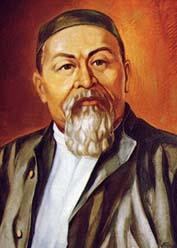
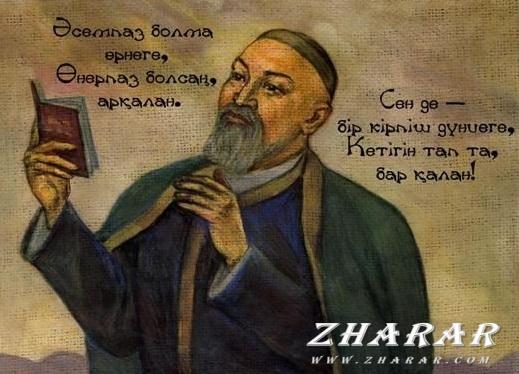

Warm up. Free talk.
A teacher asks Sts. to discuss in groups what they know about a famous Kazakh writer and poet.
Group work of three.
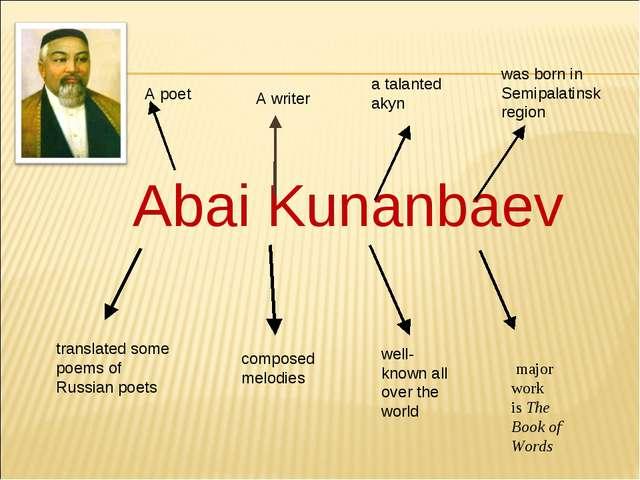
Slide (useful phrases)
Pictures
PPT
Student Book p.64
A video. A Short fragment from the film devoted to Abai Kunanbaiuli.
Poems of Abai Kunanbaiuli.
Presentation
Pictures
Cluster
Main
Activities
15 min.
13 min.
LISTENING and READING TASKS:
Listen and read the text quickly. What interesting facts about a great person have you learnt?
Date
Facts
1845
He was born near Semipalatinsk
While-reading stage.
Students move their eyes over the text quickly (3 minutes). Then they close the book. After that students call out words, phrases they remember from the text, note them. Students work in pairs (1 minute) discusses what the text is about.
Discussion Director(Interpersonal Intelligence).
Task: Lead the discussion. Prepare 2 open-ended and thought-provoking questions about the story that your group might want to discuss. Help others talk about the main idea, help them share their thoughts and feelings.
Descriptors:
1. Write 2 open-ended questions.
2. Write your responses to these questions.
3. Keep the discussion going
Options
1. Write more than 2 questions.
2. Think of new way to present your work. (E.g. quiz).
Here are some ideas:
Can you prove that ...
Why did the character...?
Predict what would happen if ...
Passage Picker(Body-Kinesthetic Intelligence).
Task: Choose a paragraph that you think your group would like to re-read.
Descriptors:
1. Choose an interesting or important paragraph and write down its location.
2. Read passage aloud yourself (using body language), or ask someone else to read it, or ask the group to read it silently and then discuss.
Options
Write why you have chosen this paragraph.
Possible reasons for selecting the paragraph:
important to text
surprising
makes you think
well written
confusing
interesting
Word Wizard (Verbal-linguistic Intelligence).
Task: Find in the text 5 words or phrases that you had difficulty reading or understand in the story.
Descriptors:
1. Write 3 unfamiliar or puzzling words in a full sentence. (You may also find familiar word repeated a lot).
2. Write the location of the word (e.g. Pg.58 § 4).
3. Try and guess the meaning from context.
3. Find a dictionary definition.
Options
1. Find more that 3 words or phrases.
2. Make a list of synonyms and antonyms.
3. Create new sentences with these words.
4. Use online dictionary to find out the pronunciation of the words.
Summariser(Intrapersonal Intelligence).
Task: Prepare a brief description of the key points in the story.
Descriptors:
1. Write at least 4 sentences.
2. Write in your own words.
3. Present the important events in a logical order.
Options
1. Include the meaning of the story.
Illustrator(Visual-spatial Intelligence).
Task: Draw a picture related to the story.
Descriptors:
1. Prepare an illustration.
2. Share your drawing and ask group members what he/she thinks you have drawn and how it is connected with the story.
3. Explain your illustration.
Options
You can draw a character, a moment or a setting.
Connector(Logical-mathematical Intelligence).
Task: Find a part of the story that reminds you of something you have seen, heard, done or read about before.
Descriptors:
1. Write at least 2 sentences. Make connections with your own experience, another text or the world.
2. Give evidence from the book to support your connection.
Options
Use graphic organiser to record and compare your connections to what happened in the text.
Character Analyser(Logical-mathematical
Intelligence).
Task: Share observations about the main characters.
Descriptors:
1. Select 2 main characters and using adjectives describe their characteristics.
2. Write at least 4 sentences.
Consider:
How the character reacts to different events?
Options
Put yourself in the character's shoes and explain the story from his (her) point of view.
Post-reading stage.
Next, students complete peer-evaluation form.
Ex.4 – 5 p.64
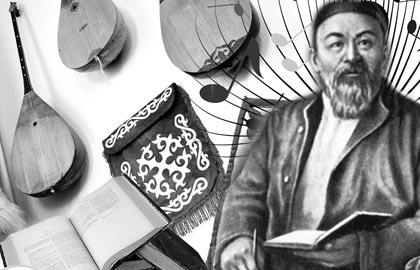
What other Kazakh writers and poets do you know?
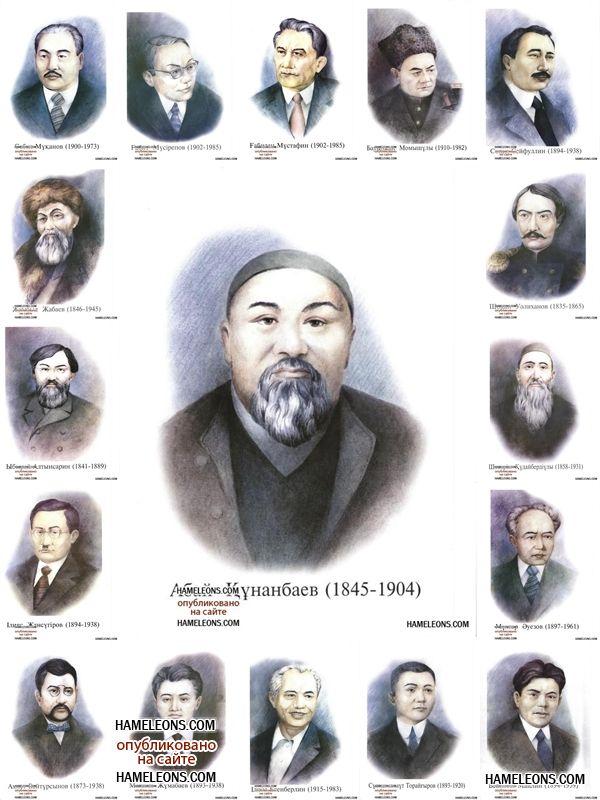
Student Book p.64
CD2.18.
Pair work.
Student Book p.66
Writing
Worksheet
Student Book p.64
Writing
Worksheets
Writing
Worksheets
Student Book p.64
Ex.1 – 3 p.64
Writing
Worksheets
Ending the lesson
6 min.
Giving the home task. W.B.p.42, Kazakh writers( a report)
Students express their attitude to the lesson and give self-assessment using the method: “Six thinking hats”:
Green: How can you use today's learning in different subjects?
Red: How do you feel about your work today?
White: What have you leant today?
Black: What were the weaknesses of your work?
Blue: How much progress have you made in this lesson? (Now I can, I still need to work on, I've improved in, Today I learnt... )
Yellow: What did you like about today's lesson?
Slide (Homework)
Slide "Six thinking hats"
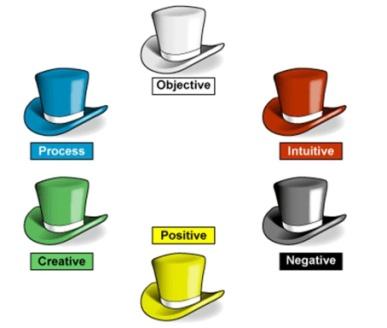
Differentiation –
how do you plan to give more support?
Assessment –
how are you planning to check learners’learning?
Critical thinking
Differentiation can be achieved through the selection of activities, identification of learning outcomes for a certain student, provision of individual support to learners, selection of learning materials and resources based on the individual abilities of learners.
Assessment criteria:
Identify the main idea in extended talks with little support.
Apply topic related vocabulary in speech appropriately arranging words and phrases into well-formed sentences.
Demonstrate the ability to participate in a conversation.
Descriptor:
A learner:
selects an appropriate answer.
completes the task.
uses appropriate subject-specific vocabulary while speaking.
discusses questions and answers the questions within the group.
Observation
Feedback on the work
Peer-assessment
Students think critically, exploring, developing, evaluating and making choices about their own and others’ ideas

 Получите свидетельство
Получите свидетельство Вход
Вход











 My Country. Abai Kunanbaiuli (493.81 KB)
My Country. Abai Kunanbaiuli (493.81 KB)
 0
0 424
424 7
7 Нравится
0
Нравится
0









